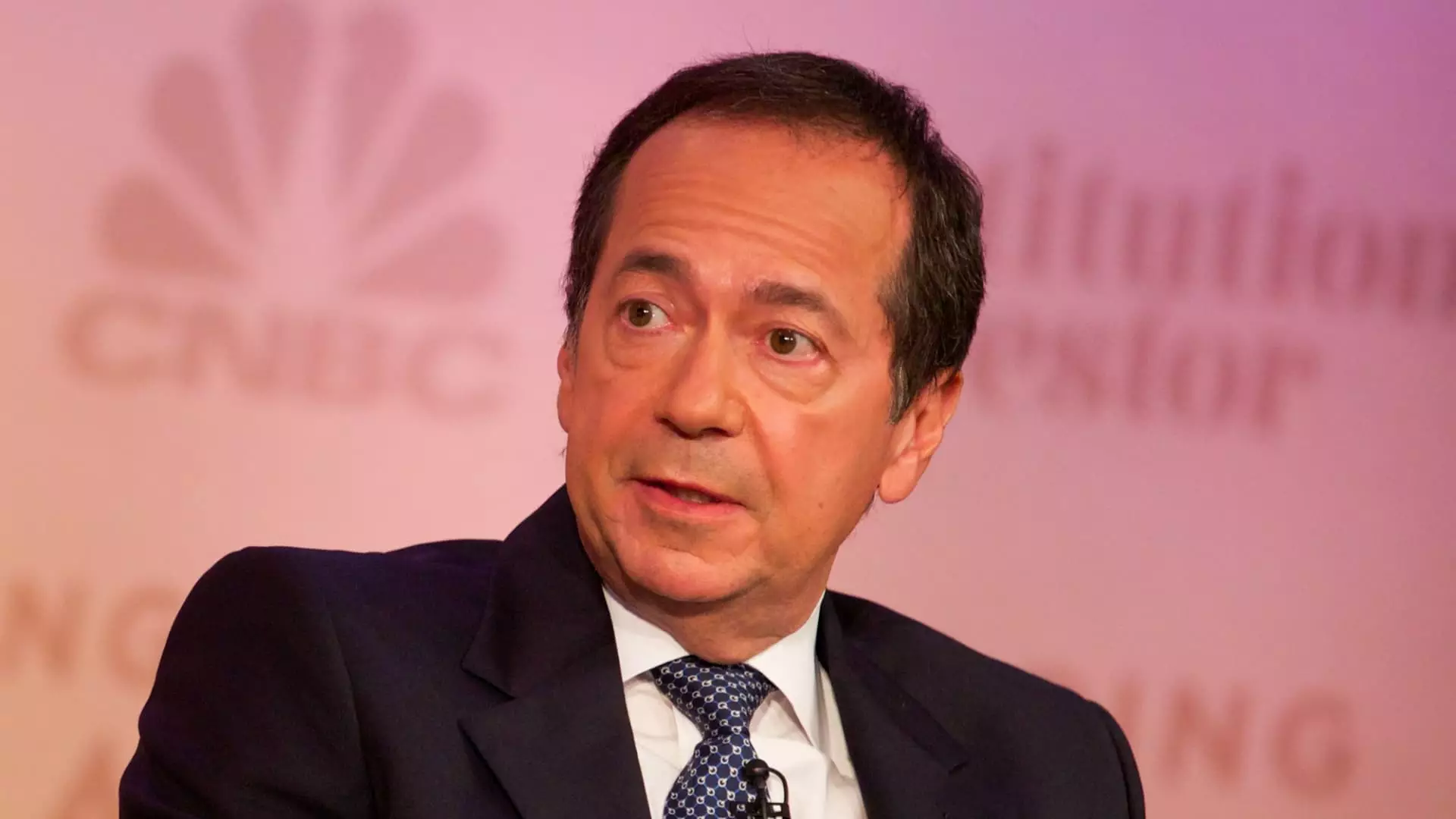John Paulson, a name synonymous with hedge fund success, has once again emerged as a prominent figure in the discussions surrounding economic policy and its implications for market stability. Best known for his prescient bets against the housing market that netted him billions during the financial crisis of 2007-2008, Paulson currently expresses his fears regarding the financial landscape under proposed taxation initiatives stemming from the Democratic platform, particularly those associated with Vice President Kamala Harris. In a recent interview, Paulson articulated his apprehensions, warning of possible market upheaval and an economic downturn if such proposals are enacted.
Paulson’s central concerns revolve around the suggested increase in the corporate tax rate from the current 21% to 28%, the steep rise in the capital gains tax from 20% to 39%, and the introduction of a tax on unrealized gains set at 25%. He maintained that adopting these tax policies would inevitably trigger a market crash, a statement that warrants careful examination as it speaks to broader economic principles and market reactions to fiscal policy changes.
Assessing the impact of tax increases on economic performance provides insight into Paulson’s assertions. An increase in the corporate tax rate can influence business investments. Corporations facing higher taxes may scale back investments in growth, potentially leading to job losses and stunted economic expansion. Conversely, the dynamics of capital gains taxes can similarly affect investor behavior—higher taxes can disincentivize investment, prompting investors to divest stocks, homes, or art to evade increasing tax burdens. Paulson warns that such behavior could create a cascading effect, triggering significant sell-offs in various asset classes, thus heightening the risk of recession.
While the proposed tax plan, particularly the tax on unrealized gains, has faced criticism, the rationale behind such a policy cannot be overlooked. Advocates argue that taxing wealth accumulation in its entirety—including gains that have not yet been realized—can address growing income inequality and contribute to more equitable funding of public services. However, the effects of this proposal seem contentious; critics, including Paulson, suggest that it would stifle investment and provoke a damaging market reaction.
The financial environment is replete with uncertainty, and any policy shifts can stir substantial nervousness among investors. As raised by both Paulson and certain economists, there are apprehensions around how substantial adjustments to corporate tax structures could impact S&P 500 earnings. While some analysts downplay the likelihood of a severe backlash—pointing to historical resilience in the equity markets—Paulson’s perspective acknowledges a potential tipping point underlining a convergence of negative economic conditions induced by aggressive taxation.
However, it is essential to consider the broader economic narrative shaped by various acting forces. For instance, the success or failure of Trump’s tax cuts is also in question; some analysts warn that renewed tariffs could reignite inflation, countering the benefits projected from tax reductions. Yet, Paulson has argued that, if executed accurately, targeted tariffs would not contribute to inflation and could instead enhance revenue streams through heightened economic activity.
Given the complex intertwining of economic policy and political ambition, any forthcoming tax reforms face significant scrutiny. While there are voices advocating for increased taxation to address inequality, as highlighted by Harris’s proposals, the implications for broader financial health cannot be ignored. John Paulson’s assertions resonate deeply, as business leaders and investors alike evaluate the potential fallout from these shifts.
In a divided political landscape, the feasibility of passing such substantial tax alterations remains in doubt. Notably, individuals like Mark Cuban have suggested ambivalence within Harris’s camp regarding the proposed tax on unrealized gains, raising questions about whether these proposals would even survive legislative scrutiny. Thus, the interplay of political aspirations and economic realities will likely dictate the future of tax policy and its impact on market dynamics.
While John Paulson’s warnings about potential financial instability due to tax policy changes merit attention, they reflect broader debates about economic strategy, market psychology, and the fundamental principles of taxation in a complex socio-economic landscape. As the discussions progress, the implications of these forecasts underscore the delicate balance policymakers must maintain to ensure market stability amid necessary government revenues.

